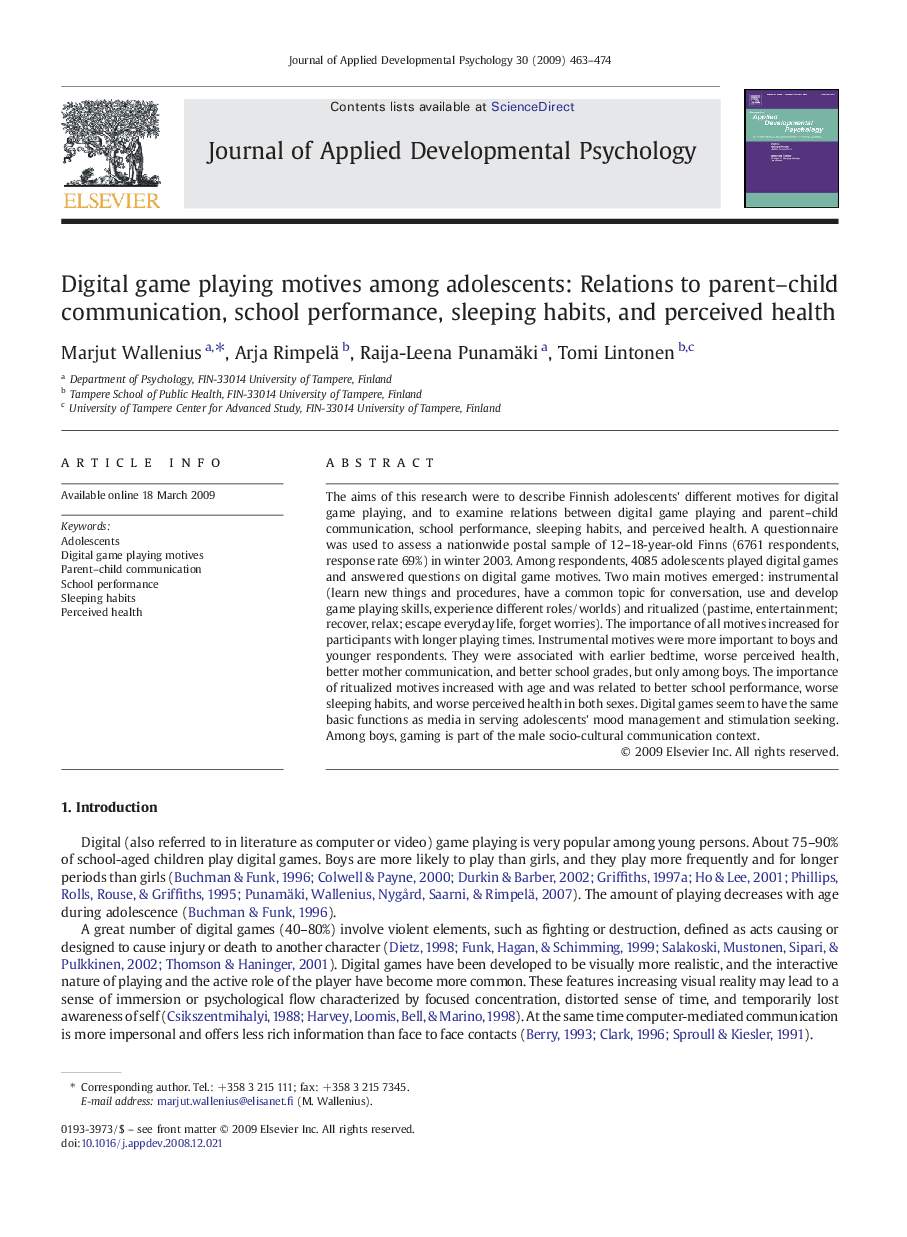| کد مقاله | کد نشریه | سال انتشار | مقاله انگلیسی | نسخه تمام متن |
|---|---|---|---|---|
| 360021 | 620313 | 2009 | 12 صفحه PDF | دانلود رایگان |

The aims of this research were to describe Finnish adolescents' different motives for digital game playing, and to examine relations between digital game playing and parent–child communication, school performance, sleeping habits, and perceived health. A questionnaire was used to assess a nationwide postal sample of 12–18-year-old Finns (6761 respondents, response rate 69%) in winter 2003. Among respondents, 4085 adolescents played digital games and answered questions on digital game motives. Two main motives emerged: instrumental (learn new things and procedures, have a common topic for conversation, use and develop game playing skills, experience different roles/worlds) and ritualized (pastime, entertainment; recover, relax; escape everyday life, forget worries). The importance of all motives increased for participants with longer playing times. Instrumental motives were more important to boys and younger respondents. They were associated with earlier bedtime, worse perceived health, better mother communication, and better school grades, but only among boys. The importance of ritualized motives increased with age and was related to better school performance, worse sleeping habits, and worse perceived health in both sexes. Digital games seem to have the same basic functions as media in serving adolescents' mood management and stimulation seeking. Among boys, gaming is part of the male socio-cultural communication context.
Journal: Journal of Applied Developmental Psychology - Volume 30, Issue 4, July–August 2009, Pages 463–474